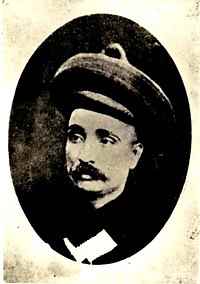The Manav Dharma Sabha was a major socio-cultural reform established by Mehtaji Durgaram Manchharam on 22nd June, 1844. It proved to be a road-map for all other reforms in Surat and especially in the state of Gujarat.

Since the second decade of the seventeenth century, Surat was under British Governance and witnessed a row of tensions especially after the start of western education and missionaries in the state.
Mehtaji was appointed as the headmaster of the Government School in Surat in 1830 and he took the position of headmaster in the Surat English School, when it was opened four years later.
Other prominent members of the group were Dadoba Panderung Tarkhad, Dinmani Shankar, Dalpatram Bhagubai and Damodar Das. Durgaram and his friends rejected "the existence of ghosts, their exorcism by means of incantations, the evils of early marriage and the bar against remarriage of high caste Hindu widows".
The main cause behind the foundation of the Sabha was the fire against the conversion of a Parsi student to Christianity. This resulted in the short life-span of the organization. However, the Sabha certainly acted as a trend-setter for further movements in the state of Gujarat and Maharashtra.
Mehtaji was appointed as the headmaster of the Government School in Surat in 1830 and he took the position of headmaster in the Surat English School, when it was opened four years later.
Other prominent members of the group were Dadoba Panderung Tarkhad, Dinmani Shankar, Dalpatram Bhagubai and Damodar Das. Durgaram and his friends rejected "the existence of ghosts, their exorcism by means of incantations, the evils of early marriage and the bar against remarriage of high caste Hindu widows".
The main cause behind the foundation of the Sabha was the fire against the conversion of a Parsi student to Christianity. This resulted in the short life-span of the organization. However, the Sabha certainly acted as a trend-setter for further movements in the state of Gujarat and Maharashtra.




